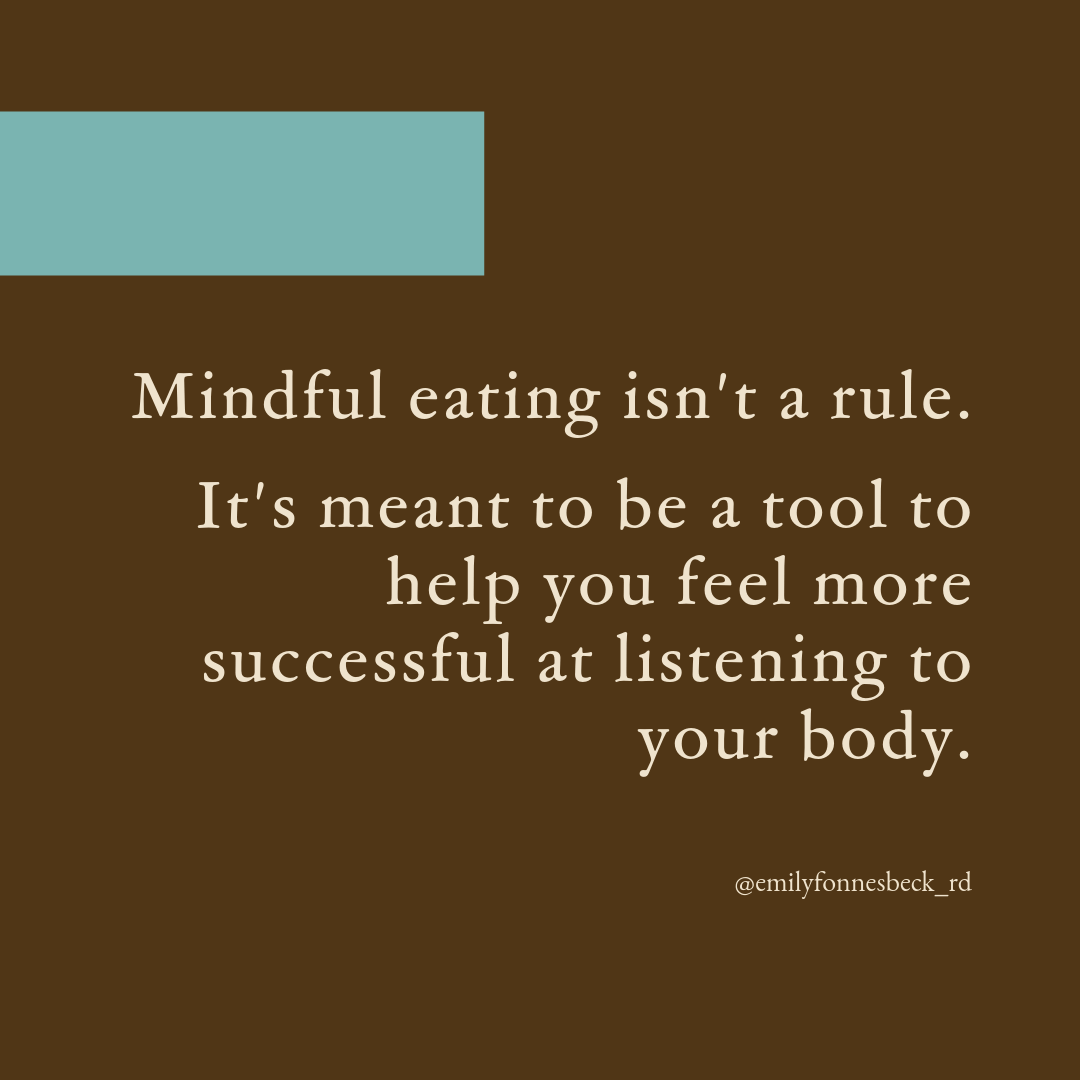I hear this a lot, “My problem is that I just love food too much!”.
I understand the concern in that statement.. but I disagree! I don’t think loving food and enjoying eating experiences is ever a problem. In fact, maybe the goal is to love food MORE.
That might sound crazy, especially if you feel like you really do love food too much.
But consider this: If you love something, wouldn’t you want to nurture it, spend time with it, slow down and savor it? Love wouldn’t encourage you to consistently numb with food or push yourself to stuffed and uncomfortable when you eat.
Eating past fullness or coping with uncomfortable emotions with food from time to time is really normal. But if it’s happening consistently – or even more than you’d like – I wouldn’t say love is truly the motivating force in those behaviors.
Because of a variety of factors (diets, food rules and body image issues being a large majority), we are incredibly disconnected from food and our bodies. We spend more time thinking and talking about food than we actually do cooking and eating it. I would suggest trying to think more about food when it’s time to prepare food or eat it as a way to be less obsessed and preoccupied with it all the time, even outside of eating events.
Instead of trying to think about it less or going out of your way to avoid it, the answers to your food issues may be found in being MORE connected to food. Some may call this mindful eating.
Essentially, mindful eating is the practice of bringing conscious, mindful awareness to your food choices and your body’s intuitive signals while engaging all your senses to make the experience satisfying and nourishing to both your body and your mind. Anecdotally, we see this kind of eating experience being practiced regularly in other countries with noted benefits to their health. In our busy and hectic lifestyle, we may rarely make the time to approach food in this way.

Many people shy away from mindful eating because they see it as rigid rules (turn off the TV, chew more slowly, etc). However, using mindful eating practices is only meant to be a tool for helping you feel more successful at eating. The goal is to create an environment conducive to positive experiences with food, which will build trust and confidence (without a diet!).
You don’t need to sit and stare at the wall while you eat, but you may benefit from making time (whenever possible) to connect with your food and your body when planning, preparing and eating your food.
How
Practice slowing down. For true psychological and physiological satisfaction, it’s important to realize you are eating. Take some deep breaths before eating, helping you approach meals with intention and connection.
As you eat, focus your attention on the food. If you find your mind wandering to responsibilities, work or judgments about the food (which it will!), gently bring your attention back to how the food tastes, smells, feels, looks and sounds (if applicable). This will allow you to truly enjoy your food while providing the opportunity to listen to hunger, fullness and satisfaction.
When
Are you eating often enough? Every body process functions best when given consistent and regular nutrition. It’s easy to forget, lose track of time or avoid eating.
Stress actually suppresses hunger signals, so a busy work day can leave you exhausted and ravenous once you finally slow down. You can likely anticipate hunger every two to four hours, depending on a snack vs a meal. Practice checking in on hunger within that time frame, being prepared with foods in case you need it. Anticipating and meeting your own needs in that way will build so much trust and confidence with food!
Why
Would you be surprised if I told you that I do recommend using food journals for some clients? The kind of food journals I would recommend aren’t to count calories or keep track of points, it’s to help you sort through your food patterns, behaviors and beliefs. Why do you eat and how do you feel about what you eat?
Food journals can create an opportunity to pause and check in, assess intentions and reflect on past situations. But they aren’t for everyone! Only use them if they feel helpful.
Where
Are you eating in the car? At your desk? While answering emails? Over the sink? While it’s probably not realistic to expect yourself to sit down with zero distractions for every meal, take every opportunity to make your meal time a separate event from work or life. You will find greater self-trust and eating competence as you truly allow yourself to just eat.
What
Anything you want! That part will always and forever be up to you. A mindful eating practice would include noticing how what you eat makes you feel and to problem solve without swinging to extremes in eating.
Mindful eating has real potential to create positive experiences with food, which will increase confidence and decrease fear. It will help you realize that you can love and enjoy food while still respecting and trusting your body. I hope this has been helpful to think about!
